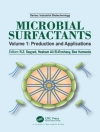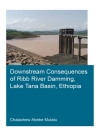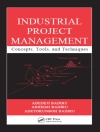Providing a thorough examination of the threats posed to destinations by tourism, this comprehensive text discusses how popular and fragile destinations such as the Great Barrier Reef could become severely damaged and forced to close to tourists if current tourism trends continue. The consequences of tourism growth, predicted changes, and management and policy responses are reviewed. The book will explore tourism in the context of climate change and vulnerable environments, exploring the situation at local level and in a wider perspective using international case studies throughout and providing future recommendations. It will be an essential text for researchers, policymakers and students in tourism, ecotourism, environmental conservation, planning, coastal management and engineering, climate change and marine conservation.
Über den Autor
Professor Mike Phillips has a BSc in Civil Engineering, an MSc in Environmental Management and a Ph D in Coastal Processes and Geomorphology, which he has used in an interdisciplinary way to assess current challenges of living and working on the coast. He is Pro Vice-Chancellor (Research, Innovation, Enterprise and Commercialisation) at the University of Wales Trinity Saint David and also leads their Coastal and Marine Research Group. Professor Phillips‘ research expertise includes coastal processes, morphological change and adaptation to climate change and sea level rise, and this has informed his engagement in the policy arena. He has given many key note speeches, presented at many major international conferences and evaluated various international and national coastal research projects. Consultancy contracts include beach monitoring for the development of the Tidal Lagoon Swansea Bay, assessing beach processes and evolution at Fairbourne (one of the case studies in this book), beach replenishment issues, and techniques to monitor underwater sediment movement to inform beach management. Funded interdisciplinary research projects have included adaptation strategies in response to climate change and underwater sensor networks. He has published >100 academic articles and in 2010 organised a session on Coastal Tourism and Climate Change at UNESCO Headquarters in Paris in his role as a member of the Climate, Oceans and Security Working Group of the UNEP Global Forum on Oceans, Coasts, and Islands. He has successfully supervised many Ph D students, and as well as research students in his own University, advises Ph D students for overseas universities. These currently include the University of Kwa Zulu Natal, Durban, University of Technology, Mauritius and University of Aveiro, Portugal. Professor Phillips has been a Trustee/Director of the US Coastal Education and Research Foundation (CERF) since 2011 and he is on the Editorial Board of the Journal of Coastal Research. He is also an Adjunct Professor in the Department of Geography, University of Victoria, British Columbia and Visiting Professor at the University Centre of the Westfjords. He was an expert advisor for the Portuguese FCT Adaptaria (coastal adaptation to climate change) and Smartparks (planning marine conservation areas) projects and his contributions to coastal and ocean policies included: the Rio +20 World Summit, Global Forum on Oceans, Coasts and Islands; UNESCO; EU Maritime Spatial Planning; and Welsh Government Policy on Marine Aggregate Dredging. Past contributions to research agendas include the German Cluster of Excellence in Marine Environmental Sciences (MARUM) and the Portuguese Department of Science and Technology.












